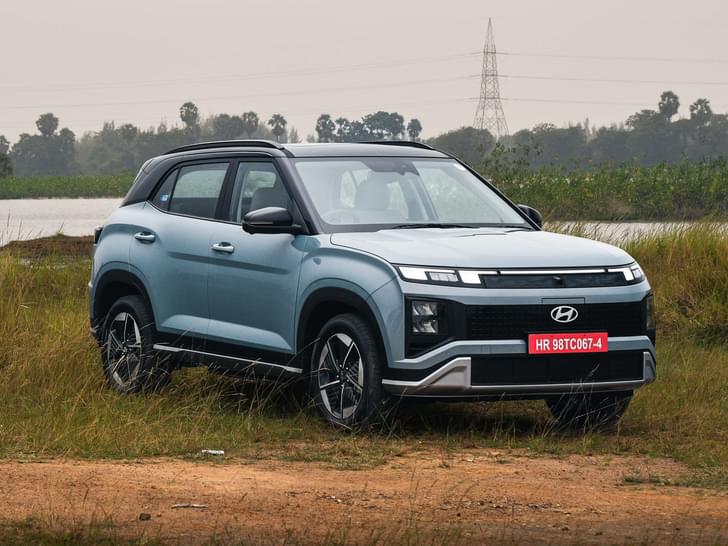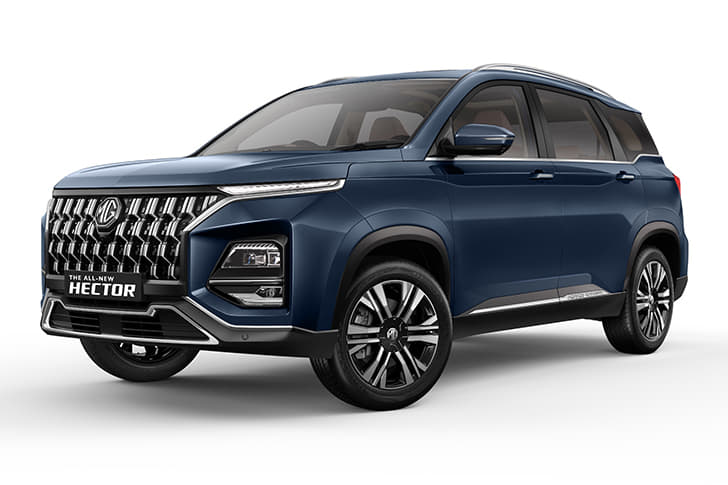The sudden surge in EVs, fuelled no doubt by high fuel prices and attractive subsidies, has caught out most automakers who are now scrambling to fast track their EV strategies. The only two companies to have cashed in on this surge are Tata Motors, who has grabbed a 70 percent market share of an admittedly small segment, followed by MG Motor at a distant number two.
Hyundai was the first to bring a contemporary EV with the launch of the Kona Electric in 2019, but the Korean company didn’t bother to cash in on its first mover advantage as the segment was too nascent at the time to genuinely bother about. However, in the space of just two years, what was a fringe segment is fast becoming mainstream and that set the alarm bells ringing at Hyundai. Quick to react, Hyundai has just announced aggressive plans to launch six all-new EVs in India by 2028.
- E-GMP platform to underpin future EVs
- Mass-market EV will use ICE platform
- EV chargers installed at 108 Hyundai dealerships
Hyundai’s EV roadmap for India
The carmaker says it will invest approximately Rs 4,000 crore to expand its EV line-up from the sole Kona Electric today to six Battery Electric Vehicles (BEV) by 2028. “The range will comprise of a total of six BEVs across different segments and body styles,” according to Tarun Garg, director of Sales, Marketing and Service at Hyundai India. These EVs will span different segments like mass market and mass premium and will include an SUV, sedan and CUV (Compact Utility Vehicle).
Hyundai is yet to announce which EV models will be launched in India, but as we reported in September, the first will be the Ioniq 5, expected by the middle of next year as a CBU. This will be closely followed by the facelifted Kona Electric, which will be assembled here.
“In 2019, we launched the Kona and made some good experiments and got very good customer feedback, so we are ready and all charged up,” said Garg.
Mass-market EV
Of particular interest will be the mass-market EV which will launch before the end of 2024 and will be built here using an existing ICE platform. “Some IC-derived EVs are also going to come, probably three would be IC-derived BEVs,” said Garg, also adding that these more affordable EVs would still have a range of 350km.
With the sustained push for EV adoption from governments and good interest from buyers, Hyundai is doubling down on EVs with a wide range of body styles and price points to grab a sizeable share of the growing EV market and improve its overall market share in India.
Hyundai E-GMP electric vehicle platform
The high-end Hyundai products will be based on Hyundai’s E-GMP (Electric Global Modular Platform) dedicated battery electric vehicle platform and the first E-GMP product in India will be the Ioniq 5. This skateboard would then also underpin future EVs that are still in the development phase. Garg admitted that the remaining three EVs for India would be built using this platform. Hyundai will also localise some components of this platform, however, in the initial years it is not likely to be a very high percentage.
The E-GMP platform being specifically designed for EVs will allow Hyundai to develop vehicles with a flat floor, slim cockpit and a flexible and spacious cabin, which would give it a big advantage over other competitors, though Maruti Suzuki is also debuting with a special EV platform.
Garg says the E-GMP platform will be a “significant part” of its EV strategy and will allow the company to offer vehicles uncompromised in performance with top speed capabilities of up to 260kph and a range of 800km.
Market size
Hyundai expects the Indian EV market size to be around 1.75 lakh units by 2028 going by current trends. But that figure is likely to be revised based on several extraneous factors like battery costs, charging infrastructure and government subsidies, which could swing either way, making a long term projection for a growth hard to predict.
But, whatever the growth is, Hyundai wants a large chunk of it. Garg says the company has “set an internal benchmark, where in any segment that we are present with BEVs, we should have a market share higher than what we have in the same segment in the IC space.”
Expanding charging network
The Korean carmaker is also working towards improving the EV infrastructure in India with strategic collaborations. Apart from providing a 7.4kW AC home charger to customers, Hyundai has also set up public 50kW DC fast charging stations in four cities (with Indian Oil), installed AC fast chargers at 108 dealerships in 15 cities (free for Hyundai customers) and is providing a 24x7 road side assistance pan-India, along with a vehicle-to-vehicle and portable charging solution for its EV customers in six cities (free for three years).
Which Hyundai EV are you looking most forward to? Let us know it in the comments below.































